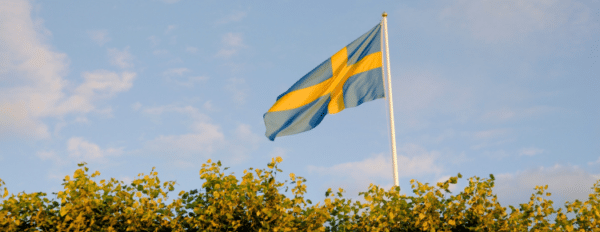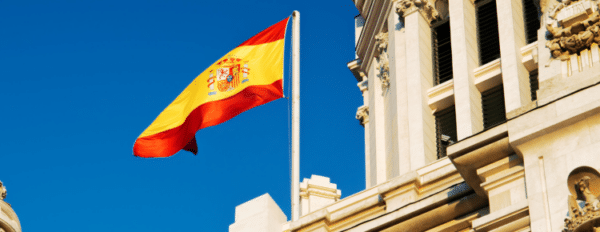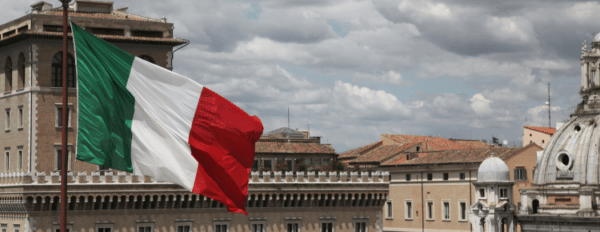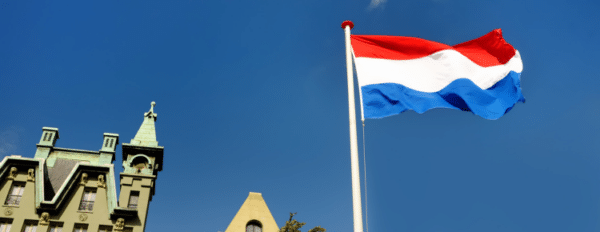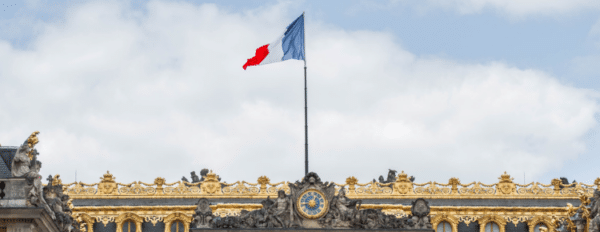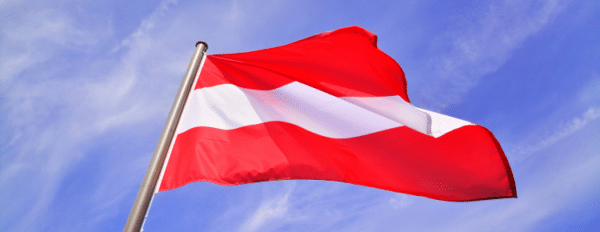Italy, renowned for its Mediterranean climate, laid-back ambiance, and rich history, is gradually gaining recognition for a different reason. The southern European country is being considered a place where people can use whichever cannabinoids they wish without repercussion.
Is it true that cannabis has been decriminalized in Italy, and what does this mean for entrepreneurs seeking to offer cannabinoids to the Italian people? In this guide, we’ll explore all the intricacies of Italian law and culture pertaining to cannabis, providing a roadmap for approaching the Italian market with CBD, CBG, and other hemp cannabinoids.
Are cannabinoids legal in Italy?
Italy has decriminalized THC cannabis possession in quantities up to 1.5 grams. When it comes to other cannabinoids, the nation follows the general EU rule on the subject, which dictates that cannabinoid products are admissible for entry into EU countries as long as they are produced in the EU and contain less than 0.3% THC¹.
Overall, Italy should be viewed as one of the more lax cannabis markets. In nations that impose strict controls on cannabis in general, a confluence of cultural and regulatory factors usually prevents even non-intoxicating cannabinoids from flourishing. Since Italy accepts cannabis overall, it usually has no problem accepting non-intoxicating cannabinoids like CBD and CBG.
Italy operates a medical cannabis market, but oddly enough, the entirety of the medical cannabis supply chain in Italy is overseen by the military². Rather than standardizing the industry, this approach has simply led to supply chain gaps and facilities shutting down³.
Clearly, Italy is not without its own struggles surrounding cannabis production and regulation. It remains the case, though, that the general attitude toward cannabis is highly relaxed in the Mediterranean country.
History of cannabis in Italy
Cannabis has been cultivated in Italy⁴ since time immemorial. Archaeological records show that Ancient Romans grew hemp as early as the Late Pleistocene age with clear records evident dating at least as far back as 1000 BC. The cultivation of cannabis for textile, medicinal, and spiritual purposes has continued uninterrupted in Italy ever since.
The use of cannabis was so widespread in Rome that Pliny the Elder makes considerable space to mention its cultivation in his history. Detailed notes are provided on the sowing of seeds in the spring, reaping of buds at the autumn equinox, and then drying the plants by wind or the smoke of a fire. Cannabis cultivation remains a core component of treatises on agriculture throughout the ups and downs of the Roman Empire’s tenure in Italy.
After the fall of Rome, cannabis enjoyed great usage in Italy during the period of the merchant republics, who largely relied on hemp sailcloth to make their voyages throughout the Mediterranean. Hemp remained the main fiber used for sails throughout Italian Unification and only saw a decrease in popularity as synthetic sailcloths became available.
Then, the global War on Drugs swept through Italy, bringing along with it a temporary rejection of cannabis. This distance has only made the Italian people fonder of the plant, however, who now recognize in even more detail the vast medicinal and healing properties of cannabinoids.
History of cannabis laws in Italy
Despite the outbreak of anti-cannabis laws that spread throughout Europe in the wake of Napoleon’s conquest of Egypt, Italy, enjoying long relations with the Moors and their hash-smoking practices, continued to allow cannabis use all throughout the 19th century. In 1887, in fact, the Italian Dr. Raffaele Valieri⁵ became one of the first scientists to publish the results of his research into cannabis use among the terminally ill.
At the First International Opium Conference in 1912, though, Italy turned heads when it demanded that cannabis be banned⁶ along with opium, citing sudden issues with hashish that had erupted in Italian colonies in Libya. This request was granted during the Second International Opium Conference in 1925, but only in the context of international trade.
Even as its position toward the intoxicating components of cannabis soured, Italy remained one of the world’s most prominent producers and exporters of hemp until the 1950s. Then, a combination of slowing domestic production and hostile international views on drugs led Italy to shrink back on hemp production for more than half a century.
Italy was one of the signatories of the UN Single Convention on Narcotic Drugs in 1961⁷, effectively making cannabis use illegal. Then, the nation banned hemp cultivation altogether in 1980, leading to the erasure of many irreplaceable Italian cannabis phenotypes that had resulted from centuries of careful interbreeding.
The period of full Italian cannabis prohibition would prove short-lived. In 1993, Italy made the controversial move⁸ of removing penalties for the possession of “soft drugs” at the culmination of a lengthy national discourse on the differences between “using” and “pushing” illegal narcotics.
This move began an overall push to bring hemp and cannabis back into the Italian regulatory fold. An era not without its drama, cannabis would be famously re-criminalized in Italy in 2006 before finally becoming decriminalized again in 2014⁹. This decriminalization only applies to personal use, however, with the cultivation and sale of THC cannabis remaining federal offenses under Italian law.
Which cannabinoids are legal in Italy?
The story surrounding cannabinoids in contemporary Italy is somewhat complex. The nation suffers from an overall drug criminality problem that it has tried to solve in countless ways. Recently, for instance, Italy legalized what it calls “cannabis light¹⁰,” which refers to domestically produced hemp products containing less than 0.2% (now 0.3%) THC.
Retailers took to this new law like wildfire, in many cases offering products containing more than the legal THC threshold or using strains not approved as “hemp” by the Italian government. Inevitable regulatory pushback has ensued, and the status of “cannabis light” products is anything but stable.
Despite these minor quirks, Italy generally allows the import and sale of non-THC cannabinoids as long as they contain less than 0.3% THC. CBD and CBG are not considered “cannabis light” by default and do not necessarily need to be derived from approved strains.
Is CBD legal in Italy?
Yes, CBD is legal in Italy due to a combination of both EU and domestic law. Following all applicable EU guidelines on the subject, CBD products entering Italy must simply contain less than 0.3% THC and meet any other general import requirements. Italy is considered a CBD-friendly country with sales massively increasing through both brick-and-mortar and online platforms.
Is CBG legal in Italy?
The lesser-known cannabinoid cannabigerol (CBG) has not been explicitly addressed by Italian law. As long as CBG products contain less than 0.3% THC, however, offering them to Italians most likely won’t meet with any obstacles. Impressed by the benefits of both THC and CBD, the Italian market is eager to encounter new cannabinoids.
Is THC legal in Italy?
In Italy, possession of up to 1.5 grams of THC-rich cannabis is decriminalized, but not legal. This means that Italian police cannot arrest or fine you if there is less than 1.5g of cannabis in your possession. For larger quantities, fines may apply, but the possibility of jail time only appears if you have been caught with quantities of cannabis beyond the possession limit multiple times.
Enforcement of cannabis laws has gone down even more with the advent of Italy’s medical cannabis industry. Overall, culturally relaxed views on cannabis appear to have trickled down to the level of law enforcement, which is evidenced by even the Italian military playing a major role in relaying cannabis to its people.
Despite all this, it’s still important to remember that cannabis is not legal in Italy, only decriminalized. This remains a nation where cannabis is generally illegal, and if you bend the law too far, you might find out just how inflexible Italian cannabis policies can be.
Does Italy have adult-use cannabis?
No, Italy has not legalized adult-use cannabis, though it will likely be one of the first European countries to do so. The EU continues to make it difficult for individual member nations to establish adult-use cannabis industries, but Germany is spearheading a multi-nation initiative to overrule this position. As a country that embraces cannabis overall but is struggling with supply chain issues, Italy is an obvious candidate for a streamlined and modern adult-use cannabis industry.
Can you import cannabinoids into Italy?
Yes, cannabinoid products containing less than 0.3% THC are generally admissible for import into Italy. EU law dictates that imported hemp products must originate in member nations, however, so it’s necessary to work with a European distributor to access the Italian market.
Are there cannabinoid manufacturers in Italy?
Italy is bereft of cannabinoid manufacturers with domestic producers forced to stick to non-intoxicating strains of cannabis for the time being. As odd as it may seem at first, the primary cannabis producer in Italy is the Italian military with its monopoly on medical cannabis cultivation. Otherwise, the Italian market is wide open for cannabinoid manufacturers to establish their brands.
Summary: Viva Italia, viva cannabis
Out of all the European nations, Italy may be the foremost when it comes to cannabis history. The plant played a crucial role in every stage of the rise and fall of the Roman Empire, and Italian farmers continued to grow hemp in the region for centuries afterward.
To the Italians, cannabis is no big deal: It’s an ancestral plant, widely misunderstood, that has the potential to be misused under some circumstances. The centerpiece of Europe’s diverse swath of positions on cannabis, Italy’s cannabinoid market is as ripe as its beautiful, ancestral farmlands.
Sources
1. Sabaghi, D. (2021c, December 14). European Union Increases THC Level For Industrial Hemp. Why Does It Matter? Forbes. https://www.forbes.com/sites/dariosabaghi/2021/12/14/european-union-increases-thc-level-for-industrial-hemp-why-does-it-matter/?sh=5a3d8f18128b
2. Kington, T. (2022, December 30). A high ambition: Italian Army aims for self-sufficient cannabis market. Defense News. https://www.defensenews.com/global/europe/2022/12/30/a-high-ambition-italian-army-aims-for-self-sufficient-cannabis-market/
3. Stevens, B. (2023). Italian Military Halts Production Of Medical Cannabis Production Piling Pressure On Supply Chain. Business of Cannabis. https://businessofcannabis.com/italian-military-halts-production-of-medical-cannabis-production-piling-pressure-on-supply-chain/
4. The long history of Cannabis and its cultivation by the Romans in central Italy, shown by pollen records from Lago Albano and Lago di Nemi on JSTOR. (n.d.). https://www.jstor.org/stable/23418014
5. Dell’Amico, M. (2014, January 9). La canapa in Italia dalle pipe preistoriche alla legge Cossiga. Wired Italia. https://www.wired.it/lifestyle/salute/2014/01/09/quando-tutti-gli-italiani-amavano-la-canapa/
6. A cannabis reader: global issues and local experiences: Volume 1 | www.emcdda.europa.eu. (2023, September 13). https://www.emcdda.europa.eu/publications/monographs/cannabis-volume1_en
7. SINGLE CONVENTION ON NARCOTIC DRUGS, 1961. (n.d.). United Nations. https://www.unodc.org/pdf/convention_1961_en.pdf
8. Sabaghi, D. (2021a, September 13). Inside Italy’s Push To Decriminalize Recreational Cannabis. Forbes. https://www.forbes.com/sites/dariosabaghi/2021/09/13/italy-wants-to-decriminalize-marijuana-on-the-ballot-amid-a-race-against-time/?sh=57d745a9639b
9. Cruciata, G. (2020). The crisis of marijuana criminalization in Italy. Filter. https://filtermag.org/criminalization-italy-marijuana-hash/
10. Italy’s “cannabis light” creates buzz even if the pot won’t | AP News. (2021, May 1). AP News. https://apnews.com/article/marijuana-italy-business-courts-international-news-ea9ac614af74488b8977e3dbe54dd795


